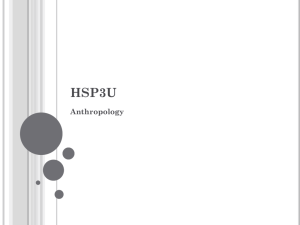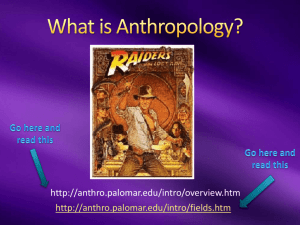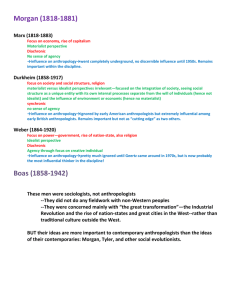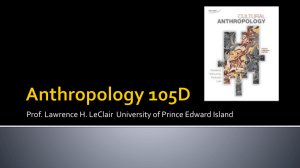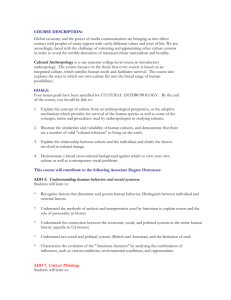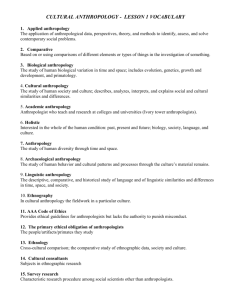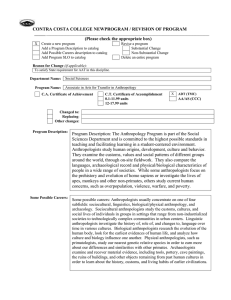Cover Letter
advertisement
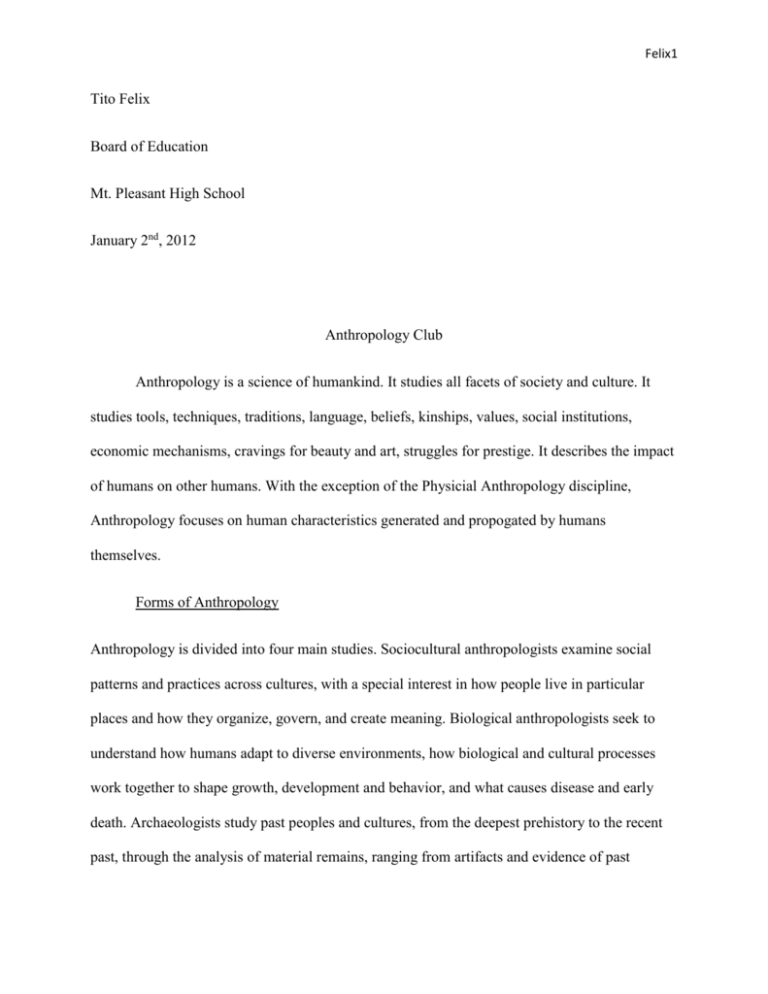
Felix1 Tito Felix Board of Education Mt. Pleasant High School January 2nd, 2012 Anthropology Club Anthropology is a science of humankind. It studies all facets of society and culture. It studies tools, techniques, traditions, language, beliefs, kinships, values, social institutions, economic mechanisms, cravings for beauty and art, struggles for prestige. It describes the impact of humans on other humans. With the exception of the Physicial Anthropology discipline, Anthropology focuses on human characteristics generated and propogated by humans themselves. Forms of Anthropology Anthropology is divided into four main studies. Sociocultural anthropologists examine social patterns and practices across cultures, with a special interest in how people live in particular places and how they organize, govern, and create meaning. Biological anthropologists seek to understand how humans adapt to diverse environments, how biological and cultural processes work together to shape growth, development and behavior, and what causes disease and early death. Archaeologists study past peoples and cultures, from the deepest prehistory to the recent past, through the analysis of material remains, ranging from artifacts and evidence of past Felix1 environments to architecture and landscapes. Linguistic anthropology is the comparative study of ways in which language reflects and influences social life. Employment Anthropologists are employed in a number of different sectors, from colleges and universities to government agencies, NGOs, businesses, and health and human services. Within the university, they teach undergraduate and graduate anthropology, and many offer anthropology courses in other departments and professional schools such as business, education, design, and public health. Anthropologists contribute significantly to interdisciplinary fields such as international studies and ethnic and gender studies, and some work in academic research centers. Outside the university, anthropologists work in government agencies, private businesses, community organizations, museums, independent research institutes, service organizations, the media. You will find anthropologists addressing social and cultural consequences of natural disasters, fair access to limited resources, and human rights at the global level.
